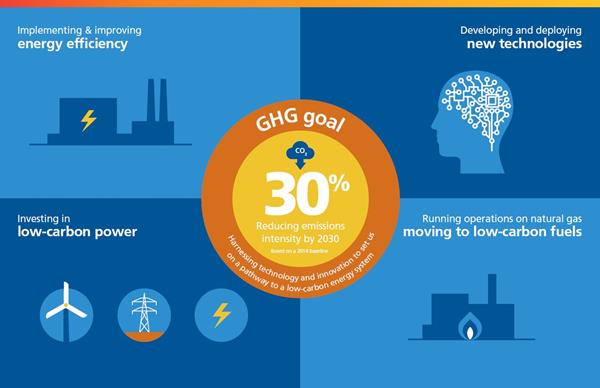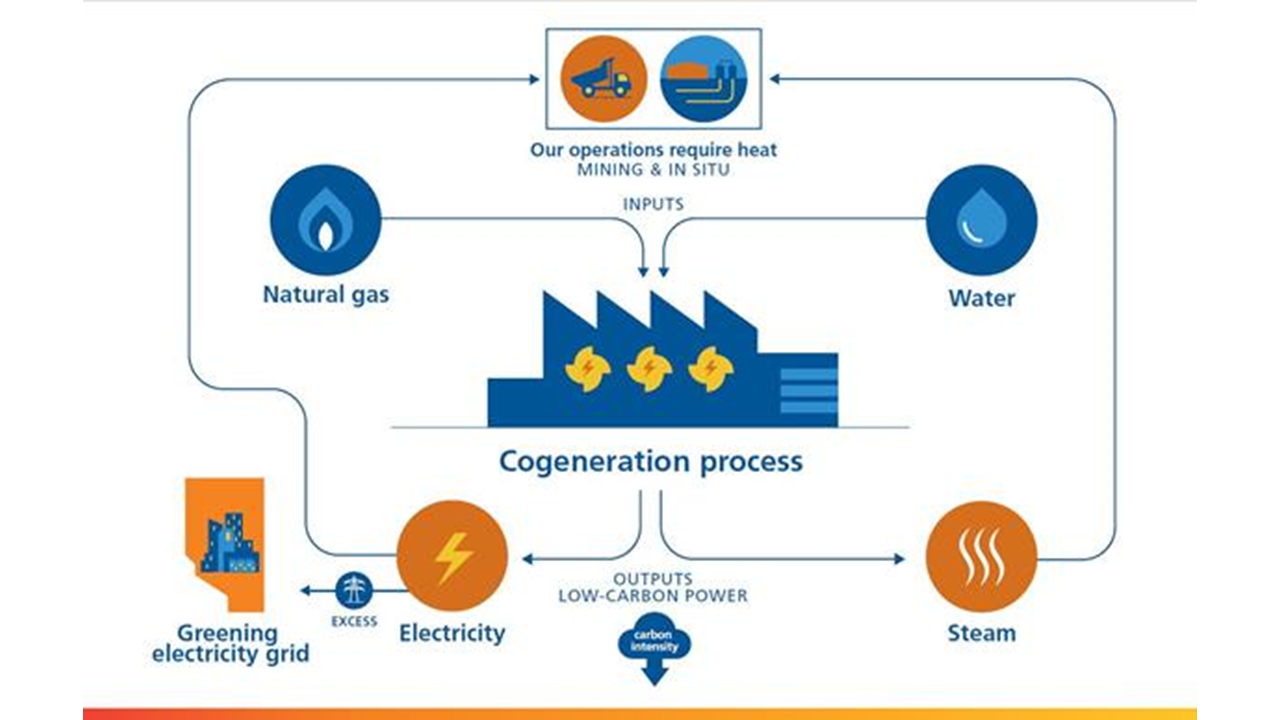Suncor Energy took another step towards meeting their goal for greenhouse gases by 2030.
The Calgary-based oilsands firm announced they would replace the coke-fired boilers at its Base Plant with two cogeneration units.
In a statement, Suncor said the units will generate steam for extraction and upgrading operations producing 800 megawatts of power.
Once transmitted into the grid, the baseload low-carbon power would equal eight per cent of Alberta’s current demand for electricity.
President and CEO Mark Little said Suncor projects are economically robust and progressive with sustainability in mind.
“This project generates economic value for Suncor shareholders and provides baseload, low-carbon power equivalent to displacing 550,000 cars from the road, approximately 15 per cent of vehicles currently in the province of Alberta.”
Little also added the project increases demand clean natural gas from Western Canada.
Suncor estimates the cost at $1.4-billion and that the units should be operational in the second half of 2023.
Also, the project should contribute to the oilsands firm’s goal of an increased $2-billion in free funds flow by the end of that year.
Finally, GHG emissions would decrease by 2.5 megatonnes per year.

Technologically progressive
Suncor Energy said replacing the boilers would decrease GHG emissions from steam production at Base Plant by 25 per cent.
Furthermore, emissions of sulphur dioxide would reduce by 45 per cent, and nitrogen oxide by 15 per cent.
No longer would Suncor rely on the flue gas desulphurization (FGD) unit when the new cogeneration come online.
They said decommissioning the FGD will decrease the amount of water withdrawn from the Athabasca River by 20 per cent.
Suncor added cogeneration will contribute to Alberta and Canada’s climate goals.







